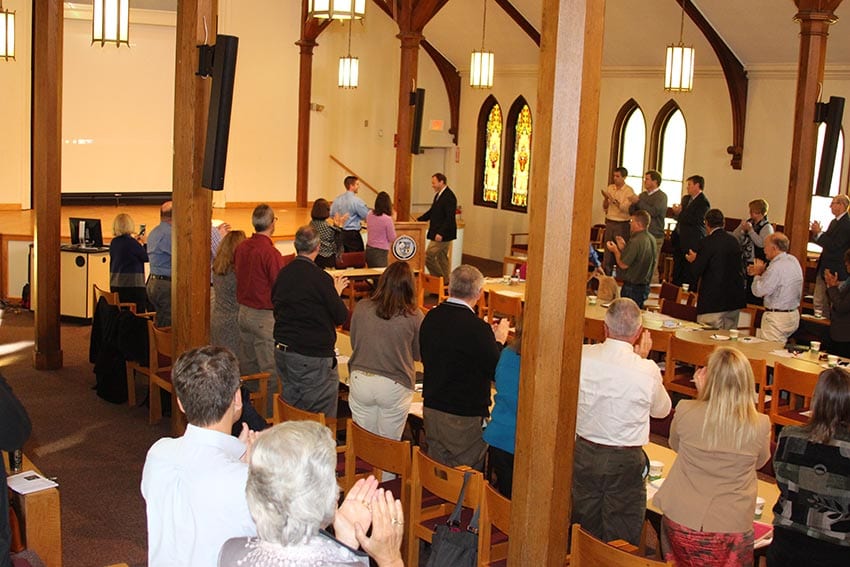February 28, 2016
BDN
By Mark Eves, Special to the BDN
Last week, the Maine State Housing Authority Board of Directors wrote a letter to Gov. Paul LePage, asking for guidance on when and if he would release voter-approved bonds for affordable senior housing passed by voters.
“Before we encourage developers to invest their time and money and before we obligate staff resources to this project, it would be helpful to know if and when you plan to approve the bonds,” Maine State Housing Authority Chairman Peter Anastos said.
The seniors who would have received a safe, warm home and the 70 percent of voters who supported the bonds deserve an answer.
With rising property taxes, high heating costs and big health care needs, many seniors are forced to give up their homes and move into assisted living facilities, nursing homes or into the homes of adult children or other relatives, who may be struggling to make ends meet themselves.
And, while we’re already aware our seniors and our families need help, a new series of studies unearth alarming ways in which we’re falling behind.
A nationwide study by the Carsey School of Public Policy at the University of New Hampshire found that 40 percent of Maine’s seniors are low income or living in poverty, a percentage higher than our neighboring states of New Hampshire and Vermont.
This is not the only study that reveals concerning trends for Maine. A recent government survey shows roughly 16 percent of Maine households don’t know where their next meal is coming from, compared to a national average of 14 percent.
Compounding these problems is a shortage of nearly 9,000 affordable rental homes for low-income older adults, which will grow to more than 15,000 by 2022 unless action is taken to address the problem, according to a report by Abt Associates.
Our seniors face poverty, hunger and constantly rising costs in housing, transportation and food.
They deserve better. Maine can do better.
LePage’s 2015 budget attempted to slash funding for the Drugs for the Elderly program that helps 35,000 seniors pay for lifesaving medications.
In addition, after legislative leaders, including me, crafted the Keep ME Home plan to help support our seniors and their independence, the governor vetoed a number of the bills passed, including important efforts to protect seniors from financial fraud and support caregivers to participate in the health care planning for their loved ones.
Luckily, legislators came together to override these vetoes, and voters overwhelmingly endorsed our actions with the passage of our affordable senior housing bond at the polls in November.
Despite the clear and broad support of the Legislature and Maine people, the governor has yet to release these funds. We hope the governor will stick to his word to support the elderly by releasing the bonds, which will help more Maine seniors live in their communities independently.
Pope Francis once said, “a population that does not take care of the elderly and of children and the young has no future because it abuses both its memory and its promise.”
While we have made some progress, there is more to be done. Lawmakers have before us meaningful opportunities to help Maine’s seniors supported by both parties in this legislative session.
Legislators will continue to work on other proposals to help seniors stay in their homes — including increases in wages for direct care workers, funding the Home Weatherization and Repair for Seniors Home Fund and increasing access to transportation services for homebound seniors.
These proposals and the pending $15 million in affordable housing bonds awaiting release by LePage are common-sense measures that continue our work supporting seniors in our state.
It is time for all of Maine’s leaders, including LePage, to work together and start honoring Maine’s promise to its seniors and families.
Rep. Mark Eves, D-North Berwick, is speaker of the Maine House.


